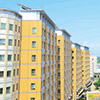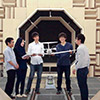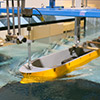Outline
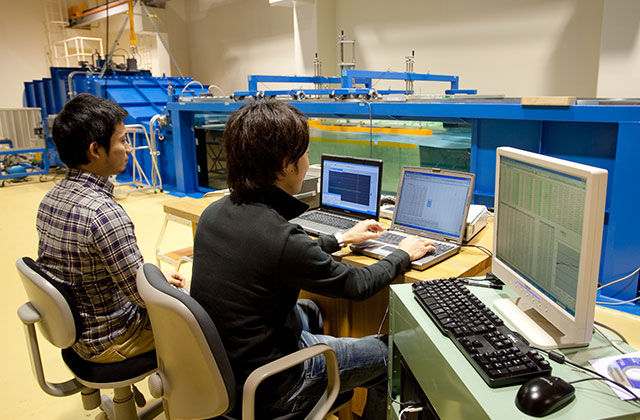 Effective utilization of ocean space, especially development of transportation systems, utilization of artificial land space on the sea and sustainable marine resources development, is an important challenge.
Effective utilization of ocean space, especially development of transportation systems, utilization of artificial land space on the sea and sustainable marine resources development, is an important challenge.
It is imperative to develop new-generation systems that are able to integrate land, coastal and ocean transportation. Coastal transportation systems are viewed as a potential solution for supplementing saturated land transportation. Intelligent access procedures are required for efficiently developed waterfront communities. Planning and construction methods are needed for the utilization of artificial land space on the sea, the construction of infrastructures (offshore floating airports and power plants, etc.) and the facilities for leisure activities (passenger cruise ships, marine leisure complexes, etc.). In addition, the development of peripheral technologies for the exploration and mining of marine resources, such as subsea transportation and machine operation, is in high demand. Amongst other technologies required for ocean development, naval architecture is particularly important.
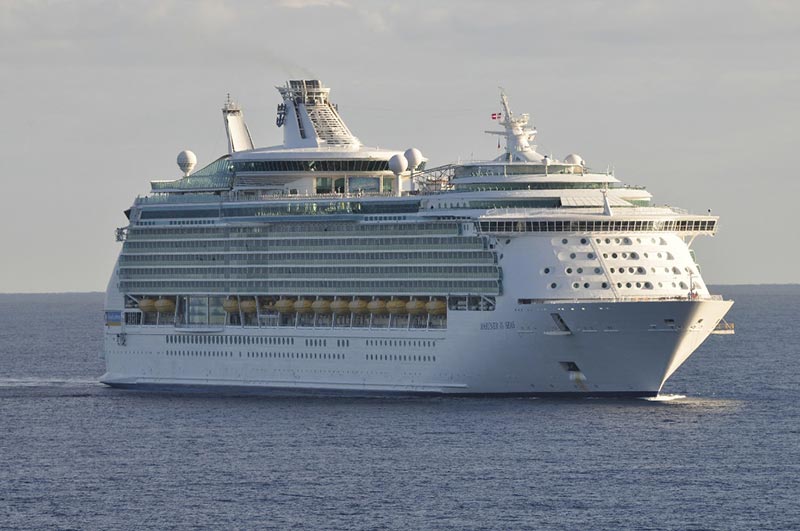
Luxury Cruise Ship
To provide useful solutions for these social demands, the Department of Naval Architecture and Ocean Engineering is offering students the opportunity to study marine utilities and naval architecture, including marine transportation systems, biological and mineral resource development technologies and the planning of ocean spaces. The objectives of our department are to be leaders in the frontiers of marine technologies and naval architecture as well as to educate students to become engineers and researchers with broad vision who can make important contributions in the new age of the marine development industry.
What do you learn?
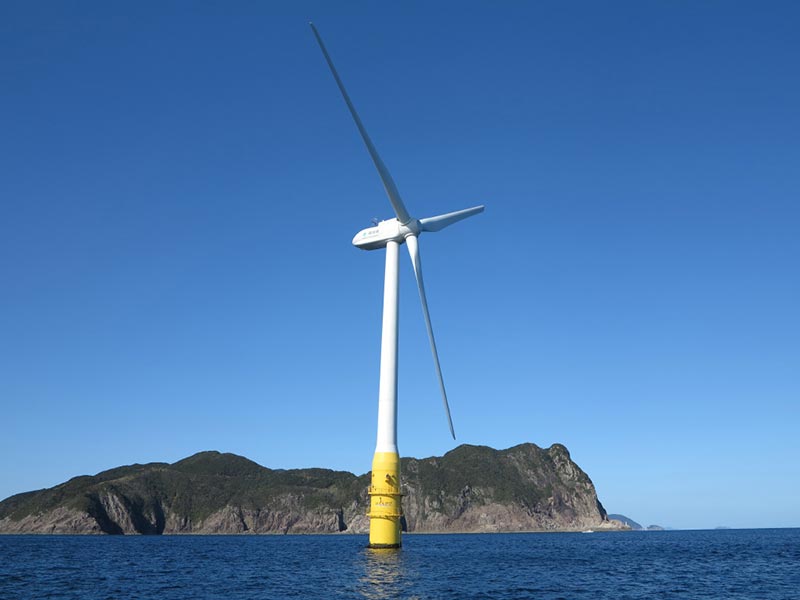
Floating Offshore Wind Turbine
To study the broad range of technologies required for marine technologies and naval architecture, students must acquire fundamental engineering knowledge as well as organizational skills based on a wider vision than simply marine technologies and naval architecture. This course of study combines structural, fluid, heat, materials, and control engineering in a curriculum designed to develop system engineering skills which can be practically applied in the design or construction of ships, and marine and offshore structures. In addition, lectures and seminars related to numerical skills, e.g. computer programming languages, numerical analyses and simulations, are provided as these numerical skills have an important role in the design and production of marine technologies.
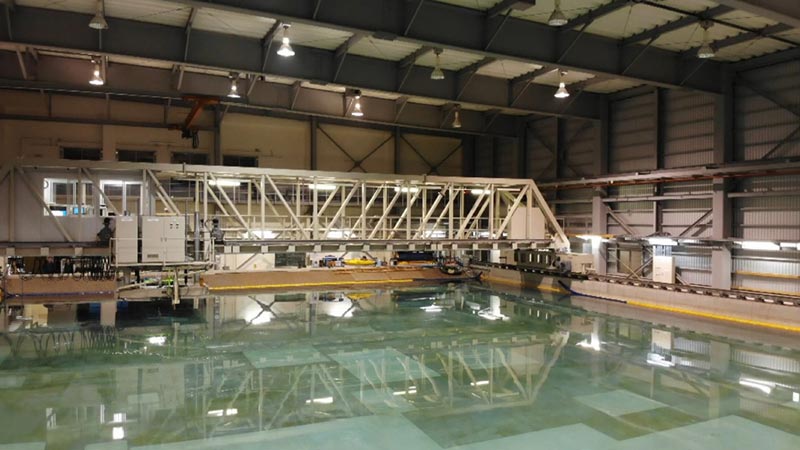
Seakeeping and Manoeuvring Basin
This course of study consists of the following seven areas of education and research: 1) Planning of Marine Systems, 2) Marine Hydrodynamics, 3) Marine Dynamics and Control, 4) Functional Design of Marine Systems, 5) Structural Design of Marine Systems, 6) Fatigue, Fracture, Welding mechanics and Production Systems, 7) Ship Design and Maritime Intelligent Technology, 8) Ocean Energy Resources.


